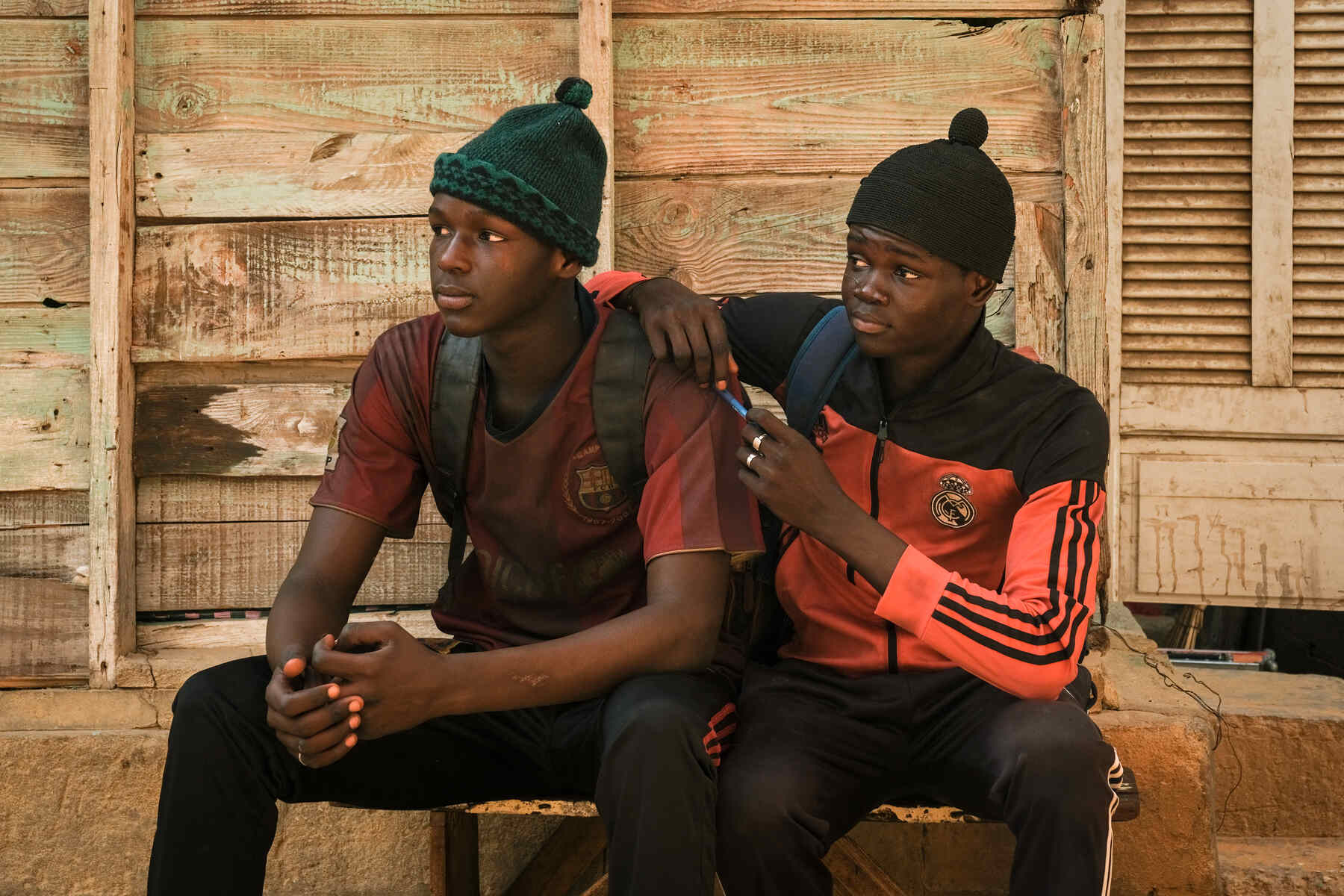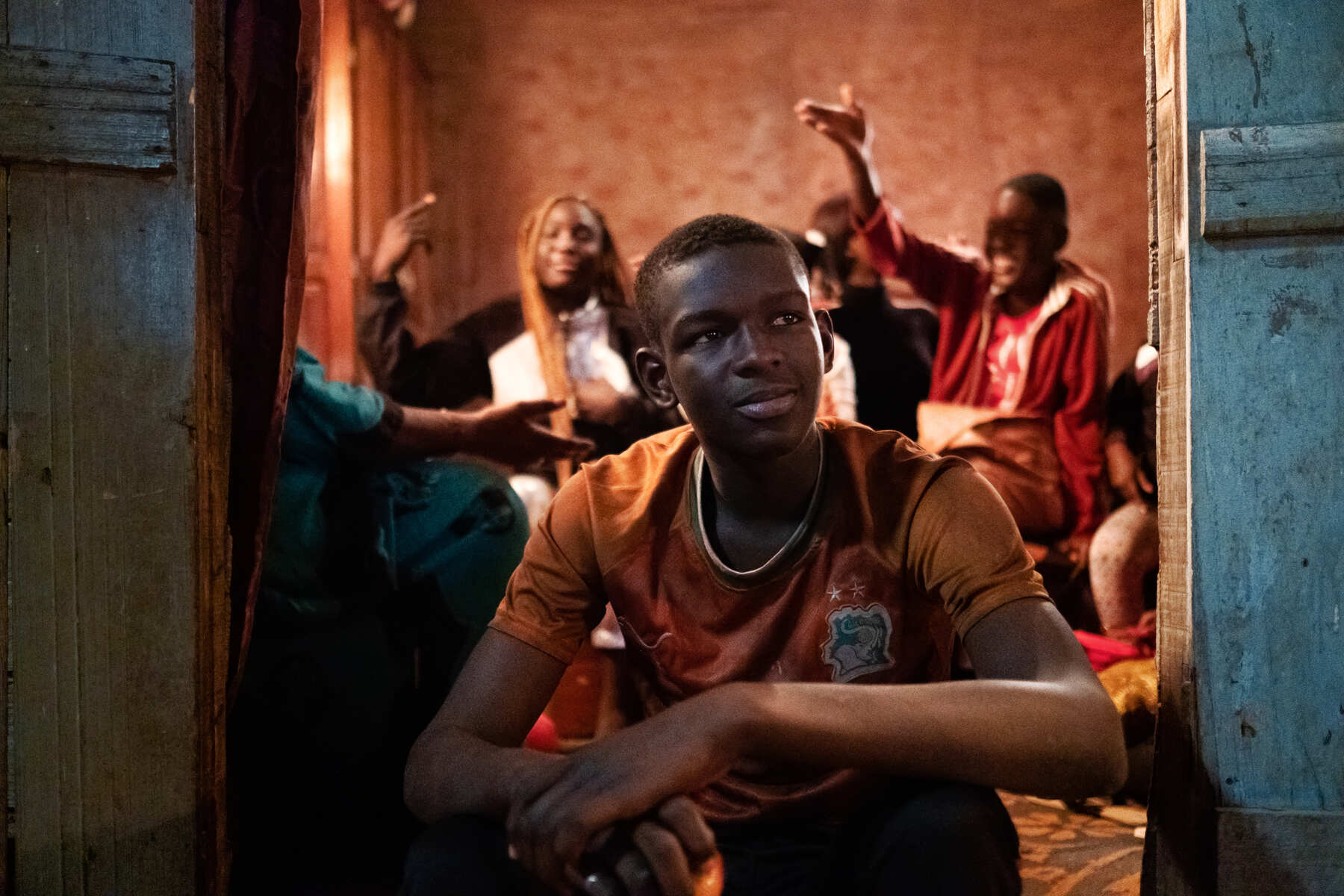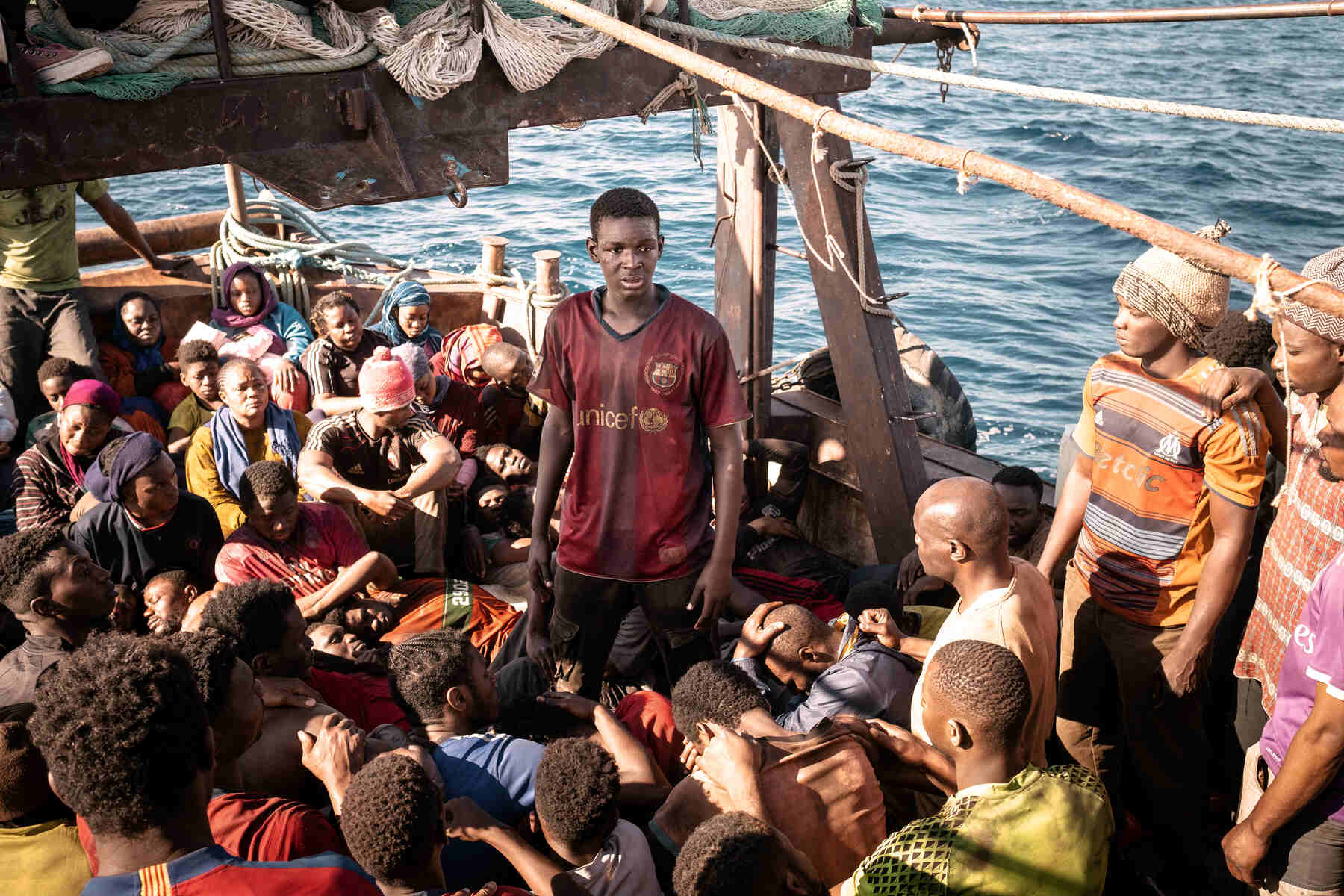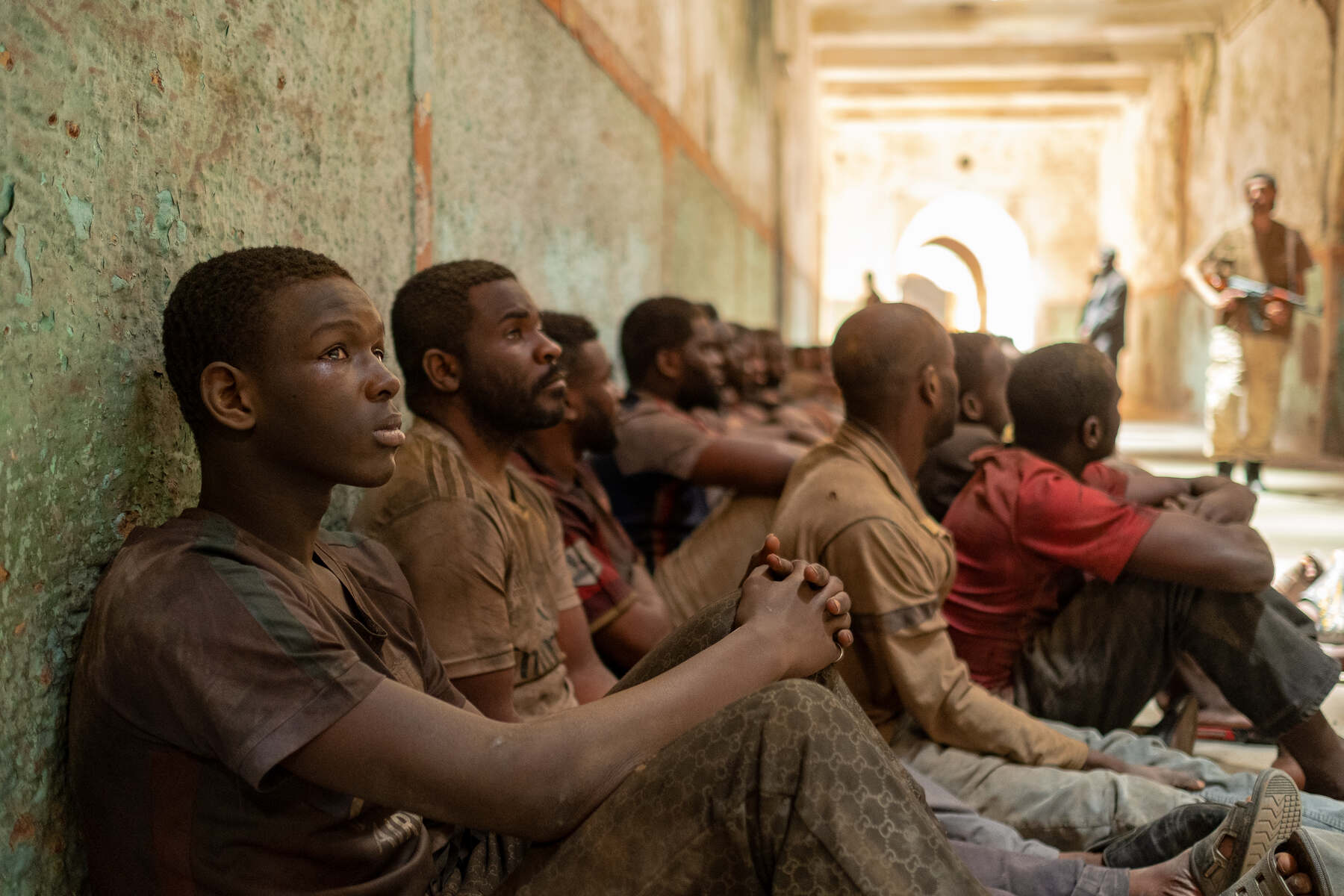Matteo Garrone’s Oscar-nominated film Io Capitano (2023) is a coming-of-age story on an epic scale. It follows two Senegalese teenagers Seydou (Seydou Sarr) and his cousin Moussa (Moustapha Fall) from their home in Dakar to Italy, where they dream of starting a new life together as successful musicians.
The boys’ youthful lust for adventure is captured beautifully in the opening sequence where every shot bursts with energy. The camera moves swiftly to keep up with Seydou and Moussa as they weave in and out of a constant flurry of morning activity, dodging bicycles, goats and market vendors selling brightly printed textiles in the street.
Despite never having acted in a film before, both Sarr and Fall are distinctly natural on screen. The innocence of their characters is youthfully authentic. “Europe is waiting for us…we’ll be famous”, Moussa whispers to Seydou in one early scene when the boys are talking about their dreams for the future. This wide-eyed naivete mixed with ambition means Seydou and Moussa are taken advantage of every step of the way. They are sold expensive fake passports that don’t get them any further than the Niger border. They take up one man’s generous offer to drive them across the Sahara, but the “brand new” car they were promised breaks down and they are left without a ride. Yet, these initial setbacks do little to crush the boys’ adventurous spirit.
Garrone captures this spirit through an extended montage that shows the boys riding a bus towards Niger. They point out the window as the landscape becomes increasingly unfamiliar, their excitement magnified by composer Andrea Ferri’s rhythmic piece ‘Touki’ which serves to propel the characters forward to their new beginning in Europe. While the montage scene is definitely an overused cliché of coming-of-age movies, Garrone has leveraged this trope to emphasise just how unprepared his characters are for the realities of their journey.
The initial bravado of the journey comes to an astonishing end when the boys see a line of dead bodies in the Sahara sand. It is a jolting moment that marks the end of their innocence and heralds a world where sentimentality has been replaced by the pragmatism of survival. The audience is also immersed in this new world. Like Seydou and Moussa, we are not given the time to process what we have witnessed.
Garrone pushes us forward with a brutality that matches the desert landscape itself. Sweeping shots of the Sahara Desert emphasise its sublime beauty. In one majestic montage captured by cinematographer Paola Carnerra, sand dunes undulate against expansive blue skies and seem to reach out beyond the frame to engulf the audience. Ferri’s accompanying soundtrack make these shots all the more breathtaking, using solemn monastic melodies that are fittingly sparse.
It is scenes like these that truly mark Garrone’s gift for transforming the heaviness of fact into spectacular cinema. The narrative is deeply grounded in reality, based largely on the story of a Senegalese teen who Garrone met in a Sicilian refugee shelter. Yet, Garrone manages to avoid the stiffness that these kinds of ‘docudramas’ often fall into, finding pockets of unexpected beauty even within the film’s darkest moments.
One particularly memorable section of the film is Seydou’s imprisonment in Libya, where he is blackmailed and tortured by the Libyan mafia. These scenes are raw and deeply confronting. But this rawness is interrupted when Seydou dreams of an angel who carries him back across the Sahara to his mother’s lap in Dakar. This phantasmagorical sequence is visually poetic, throwing the prison’s steely harshness into a warm, though fleeting, relief.
The film is harrowing and at times difficult to watch. But it is also breathtakingly beautiful, showcasing Garrone’s ability to balance harsh realities with mesmerising cinema. The title, Io Capitano – or “I Captain” – is a reference to the final stage of the boys’ Homeric-style odyssey when Seydou is tasked with piloting an overcrowded shipping vessel across the Mediterranean. At this point, we can barely recognise the wide-eyed boys from that first adventure montage. When Seydou and Moussa finally see land on the horizon, neither one of the boys can smile. Instead of Ferri’s upbeat rhythms from earlier in the film, we hear the drones of police helicopters overhead.
Far from the ‘promised land’ of their dreams, their arrival in Italy is only the beginning of another long journey.
‘Io Capitano’ is in cinemas now.








